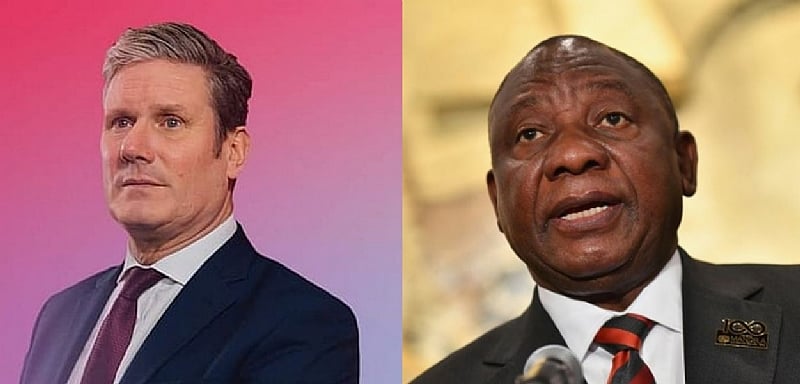In a significant diplomatic move, British Prime Minister Sir Keir Starmer initiated a dialogue with South African President Cyril Ramaphosa shortly after taking office on July 7, 2023. This phone call marked the first formal exchange between the two leaders since Ramaphosa’s participation in the UK-SA Business Forum in 2022. The discussions emphasized a collective commitment to enhancing bilateral cooperation, promoting economic prosperity, and addressing global challenges through strong multilateral engagement. Starmer’s Labour Party has acknowledged the growing importance of African nations, pledging to implement a revised strategy that aims to foster long-term mutual benefits, signaling a departure from Britain’s recent focus on Europe and the Indo-Pacific that has left Africa on the sidelines of UK foreign policy.
Britain’s historical neglect of African diplomatic and developmental initiatives has resulted in a perception of disengagement among African countries. The absence of substantial UK support during the COVID-19 pandemic, unmet climate finance obligations, and a decline in development funding are factors contributing to this sentiment. Furthermore, the lack of visits to South Africa by UK cabinet members since 2018, despite South Africa being the UK’s largest trading partner in Africa, highlights the need for renewed engagement. As African nations reevaluate their geopolitical positioning, they are increasingly seeking international partnerships that align with their developmental aspirations and those of the Global South, making it imperative for the UK to reassess its approach toward Africa to maintain relevance in the continent’s evolving landscape.
The groundwork for a robust UK-South Africa partnership already exists, as evidenced by the substantial trade and investment figures presenting a promising economic corridor. By the end of the first quarter of 2024, trade in goods and services between the two nations reached £10.3 billion, with UK exports at £4.5 billion and imports at £5.8 billion. Furthermore, nearly 11,000 UK businesses were engaged in trade with South Africa by 2023. Notably, British foreign direct investment in South Africa amounted to £21.5 billion in 2021, with British International Investment playing a crucial role in fostering economic connections and supporting job creation within the country. Investment contributions to South African enterprises surpassing $2 billion since 1995 illustrate the potential for continued growth and collaboration between the two economies.
For the UK to transition from foundational relations to a truly strategic partnership with South Africa, it is essential to adopt a proactive, long-term vision prioritizing joint initiatives across crucial sectors like renewable energy, healthcare, infrastructure, and digital technology. The alignment between the UK’s International Development Strategy and South Africa’s National Development Plan signifies potential for synergistic efforts, particularly in driving sustainable growth and addressing global challenges. Both countries share common goals of fostering inclusive economic development, enhancing health systems, promoting gender equality, and committing to climate resilience, creating an urgent need for progress from mere discussion to action.
To facilitate this transition, financial institutions in both countries can play a critical role in serving as enablers of economic collaboration. Their expertise in navigating complex regulatory environments can promote tailored financial solutions that cater to the specific needs of cross-border trade. Additionally, banks with operations in both regions can utilize diverse capital sources to support investment in growth sectors, providing essential financial products and digital platforms that benefit small and medium-sized enterprises—the backbone of many African economies. By enhancing access to capital and streamlining trade processes, these banks can help strengthen economic ties and drive sustainable development.
The recent South African Business Showcase in London exemplifies an opportunity for both nations to recalibrate their bilateral relations. This event, attended by senior South African government officials engaging with their UK counterparts, signifies a pivotal moment for establishing clear policy directives and fostering innovation-focused partnerships. Moving forward, the UK should prioritize its African foreign policy, while South Africa can leverage this renewed attention to facilitate tangible outcomes. By committing to specific investments and creating actionable roadmaps geared towards innovation, infrastructure, and skill development, both nations can cultivate a thriving partnership that yields meaningful economic resilience and growth for their mutual benefit.


